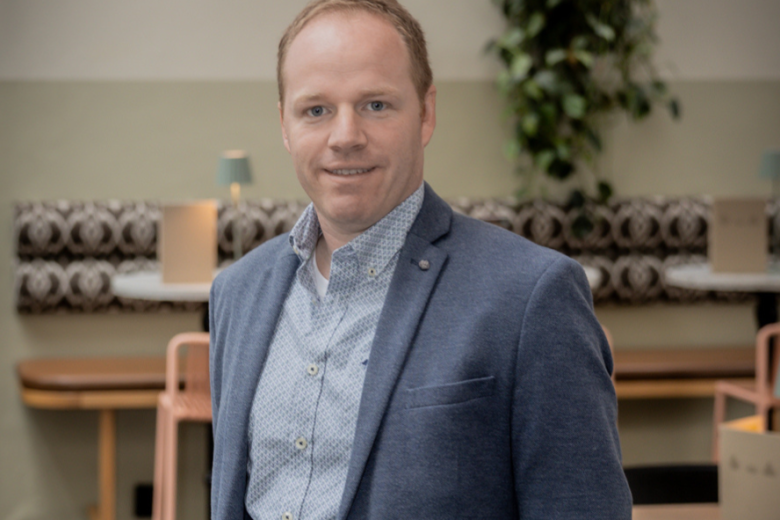The Societal Impact Project
The ‘Societal Impact Project’ is a yearly extracurricular activity, coordinated by Dr. Raffaele (Raffa) Altara, and organised by the Faculty of Health, Medicine and Life Sciences for first-year students in the bachelor’s programmes Biomedical Sciences. The goal of the project? Stimulate students’ autonomous motivation to work on societal relevant problems. This year, a group of Biomedical Sciences students signed up to work on vaping, a problem well-known among their peers. The group worked under the guidance of Prof. Dr. Gera Nagelhout.
Each first-year student has to explore the faculty, meet their fellow students and staff members and become acquainted with Problem-Based Learning. Despite the intensity of the first year, some students are eager to take on extracurricular activities. The ‘Societal Impact Project’ acts as a catalyst to keep motivation high by offering an authentic and collaborative learning experience. Five students of the Biomedical Sciences bachelor’s programme signed up to work on vaping, one of the topics this year.
Off the puff
“We all thought it was interesting to work on vaping because it intersects with the human side of research.” The group focused on helping young people who are already vaping to quit. “We see kids as young as 12 years old vape in our environment. Similar to smoking, vaping can cause developmental issues, and we hope to contribute to or stimulate further research to help kids and teenagers quit vaping.” The students research the immediate short-term medical consequences of vaping, as “no long-term research is yet available. Hopefully, our project can help to tackle that research deficit.” To communicate their findings, an Instagram account @off_the_puff was made to connect with younger people.
Furthermore, the group delved into the literature on the effects of vaping such as DNA damage, toxic chemicals and nicotine poisoning. They also conducted interviews with their peers and collected information on why people actually start vaping. “At our age, we tend to feel invincible. The threshold to start vaping is lowered by the use of colours and flavours in vape devices.”
According to the group, the dangers of vaping are clear. “Vaping is more addictive than smoking because of the chemicals in the fluids. These chemicals also include heavy metals which are heated up by a coil. This process is carcinogenic and increases the risk of lung cancer.
Pull on knowledge
To support their work, the group is coached by Prof. Dr. Gera Nagelhout, Professor at the Department of Health Promotion. “Prof. Nagelhout reached out to medical doctors, researchers, and specialists in the field of vaping, who we then interviewed to gain more insight.”
Prof. Nagelhout: “I’ve coached the Societal Impact project for several years now. Each group requires a different approach, some need coaching on collaboration, while others benefit from my expertise in health and well-being. My own research focus lies in projects with a societal impact, so this is fun for me to do. Each year, students surprise me by coming up with creative solutions for wicked problems.” According to Prof. Nagelhout, the Societal Impact Project is based on the Self-Determination Theory. “There are three basic psychological needs for students to stay motivated: autonomy, competence and relatedness. This project tries to strike a balance between all three.”
The group of students (Nathasya Schoenmakers, Jasper Boekhoudt, Pradyumna Krishna, Isse Vermaas en Kruthagnya Shankar) hope to continue their work when the official one-year period of their project ends. “It’s a glimpse into a possible future research career plus the project organises several workshops on speaking in public and presentation skills. Hopefully, we can broaden our research scope to include the use of tobacco and cannabis among younger people.”
Also read
-
Is prevention cheaper than cure?
Preventing disease is not always cheaper than treating it — but it can be vital for keeping healthcare affordable and accessible. Professor Mickaël Hiligsmann (VHC), newly appointed Professor of Health Preferences and Economics of Prevention at CAPHRI, studies how preventive measures can deliver...

-
Sophie Jooren - Compliance to local tobacco policies
Whether a specific intervention to create a smoke-free outdoor environment is effective or not has been widely studied. However, to improve compliance, policymakers need to understand how smokers react to those interventions and the factors influencing their compliance.

-
Sweeteners help maintain weight loss after dieting
Overweight people who want to lose weight successfully are better off supplementing their healthy diet with sweeteners than with foods containing sugar products. An international study, in which Maastricht University (UM) participated, shows that people who supplement their diet with sweeteners are...
